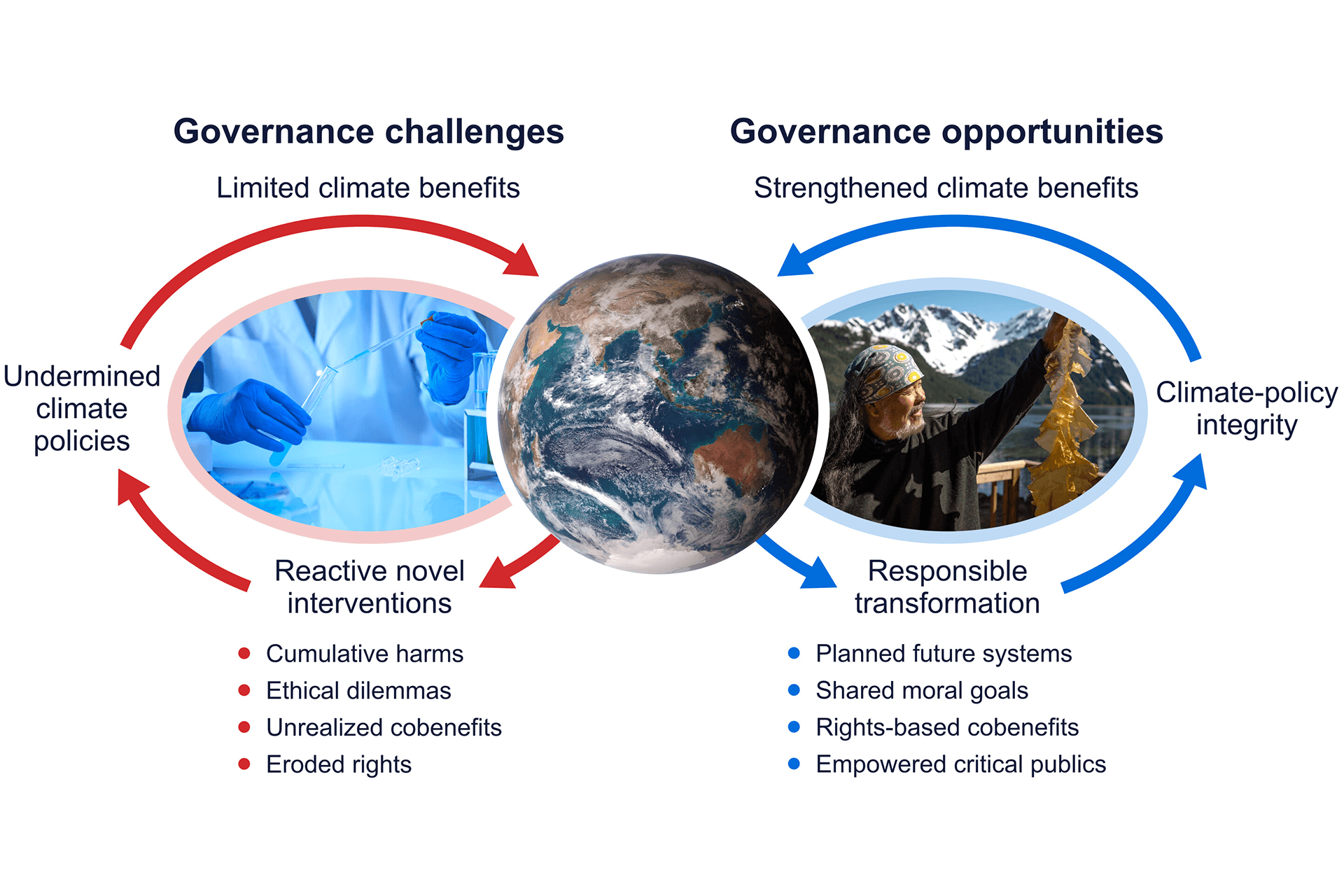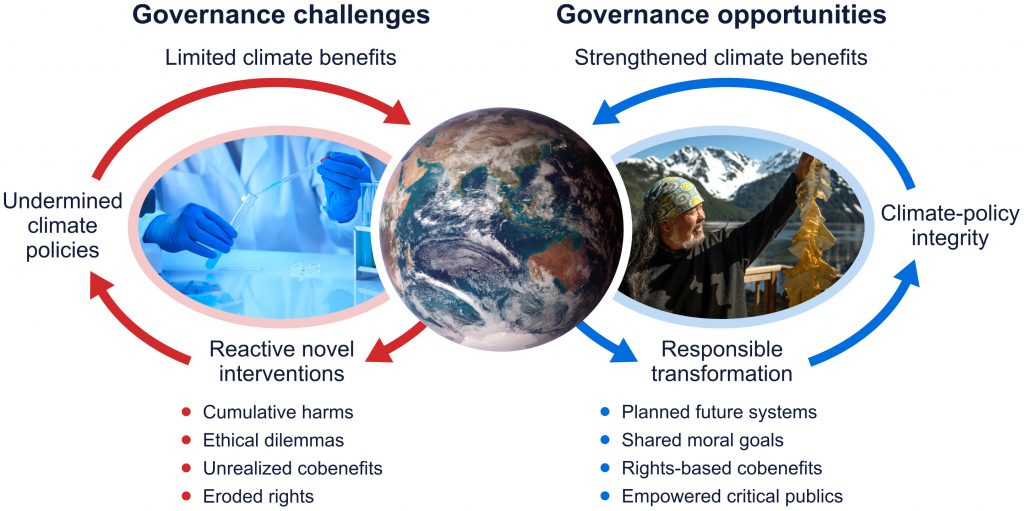Science: Governing novel climate interventions in rapidly changing oceans
- News item
- Publication

Structured Abstract
BACKGROUND
The scale and intensity of climate-driven change in marine systems is triggering a host of urgent interventions to sustain oceans and ocean-dependent societies. Marine-climate interventions are intentional actions in marine systems to address climate mitigation and adaptation goals. They range from geoengineering and bioengineering (such as making oceans more alkaline or engineering climate-tolerant coral) to sequestration and energy interventions (such as farming seaweed at scale and developing offshore wind). As interventions advance and deploy, science and policy leaders must confront shared and growing challenges of verification, scale, and risk. Emerging risks include ineffectiveness at achieving climate goals; unintended social and ecological harm; failures in amelioration or restitution of harm; social and political conflict; and public distrust of interventions and their proponents. At the broader governance level, risks include opportunity cost, whereby overhyped interventions can crowd out less hyped but more effective solutions. Few maritime nations, if any, have the capacity and mechanisms in place to fully anticipate, monitor, and respond to these rapidly evolving dynamics. The very real hazard of maladaptation, whereby intervention risk outweighs climate benefit, could accelerate a parallel social-ecological crisis.
ADVANCES
At a time when the world’s oceans are experiencing unprecedented climate stress, the capacity of scientists and policy-makers to understand and steward marine systems is challenged by the rapid pace and range of new climate interventions that are being proposed. Mounting evidence shows that as interventions proliferate, they continue to be assessed in isolation and with varying degrees of effectiveness. Here, we show that a more coordinated understanding and effort is possible. We document how seaweed and ocean alkalinity scientists, for example, are developing sharable ways to scale and verify while coastal researchers are developing sharable frameworks and principles for understanding and managing ethics and risk. We demonstrate that challenges of scale, verification, and risk are universal across many different interventions. In developing mutual lessons across interventions, we show how insights can be extended beyond the early conceptualization and trial phases of interventions and advanced toward coordinated uptake within broader governance arrangements for responsible transformation of climate-affected marine systems. For climate goals to be progressed and societal and ecosystem risks minimized, responsible transformation principles must inform intervention governance at local, regional, and international levels.
OUTLOOK
Despite early optimism, a more coordinated understanding and effort is necessary to facilitate responsible deployment of appropriate marine interventions at the scale required to address climate change. The following future actions are urgently needed: (i) coordinated understanding of the trajectories of climate change, the responses of marine ecosystems to these changes, and the science of intervention; (ii) upscaling of intervention-specific research principles to the marine-climate governance system itself, including climate policy settings, marine spatial planning, and cumulative impact assessment processes; (iii) ambitious bioethical deliberation of interventions, embracing the rights of Indigenous Peoples, local communities, nonhuman species, and future generations; and (iv) crafting of strategic science, policy, and finance to maximize the climate benefits of interventions and minimize the societal and ecosystem risks. Coordinated effort across research and governance can overcome siloed approaches, harness the optimism of new interventions, and drive more responsible transformation of climate-affected marine systems.

The complete Science article by Tiffany H. Morrison, Gretta Pecl, Kirsty L. Nash, Terry Hughes, Philippa J. Cohen, Cayne Layton, Katrina Brown, Catherine E. Lovelock, Maria Carmen Lemos, W. Neil Adger , Sarah Lawless, Bob Muir, Georgina G. Gurney, Elizabeth Mcleod, Katherine E. Mills, Imani Fairweather-Morrison, Michael Phillips, Andrew Sullivan, Nathalie Hilmi, Lucy Holmes-McHugh, Sisir Pradhan, Robert Streit, Navam Niles, and Emily Ogier is available at: https://www.science.org/doi/10.1126/science.adq0174